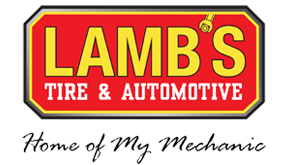Oil Change Essentials: The Importance of Regular Oil Changes and Choosing the Right Oil Type

Regular oil change service is a fundamental maintenance task that should never be overlooked. Having the old, dirty oil routinely replaced with clean oil ensures your engine stays properly lubricated, reducing friction and preventing premature wear and tear.
Choosing the right type of oil for your vehicle and driving conditions is essential to maintaining the optimal performance and longevity of your vehicle’s engine. But, you may be wondering how to know which type might be best. Don’t worry; we’ve got you covered!
In this article, we will break down exactly why regular oil changes are so important and provide the information needed to confidently choose the right oil type for your engine.
The Importance of Regular Oil Changes in Austin, TX
Extreme temperatures in Austin, TX, and challenging driving conditions can take a toll on your vehicle's engine. Let’s take a look at exactly why routine oil change service is so important:
The Role of Oil in Engine Performance
Oil plays a critical role in keeping your vehicle's engine running smoothly. It is a lubricant that reduces friction between moving parts and prevents excessive wear and tear. Oil also helps to cool down the engine by dissipating excess heat generated during combustion. Without proper lubrication and cooling, the engine can suffer from increased friction, overheating, and decreased performance.
Why Are Oil Changes Necessary for Your Vehicle?
Over time, engine oil collects dirt, debris, and other contaminants that can impact its effectiveness. As the oil becomes dirtier, it loses its ability to lubricate the engine properly, leading to increased friction and potential damage to vital engine components. Besides getting dirty, oil can also break down due to exposure to high temperatures, losing its viscosity and lubricating properties.
So, regular oil changes are necessary to remove old, dirty oil and replace it with fresh, clean oil. Doing so ensures that your engine is consistently provided with the lubrication and protection it needs to function optimally. Additionally, regular oil changes allow for the inspection of your vehicle's engine for any potential issues, enabling early detection and prevention of major problems.
The Benefits of Regular Oil Changes:
- Improved engine performance. Regular oil changes help maintain optimal engine performance by reducing friction and preventing engine overheating. This, in turn, ensures smoother operation and enhances your vehicle's overall driving experience.
- Extended engine life. Proper lubrication through regular oil changes minimizes wear and tear on engine components, potentially extending the life of your engine.
- Enhanced fuel efficiency. Clean engine oil with the proper viscosity allows the engine to operate more efficiently, resulting in improved fuel economy. So, regular oil changes can help maximize your gas mileage, saving you money at the pump.
- Prevention of costly repairs. Neglecting regular oil changes can lead to engine damage and potential breakdowns. Investing in regular oil changes reduces the risk of major engine problems, avoiding expensive repairs that could have been prevented.
- Environmental benefits. Fresh oil contributes to reduced emissions and a cleaner environment. By changing your oil regularly, you play a part in minimizing your vehicle’s environmental impact.
By understanding the role of oil in engine performance and recognizing the necessity of oil changes, you can ensure that your vehicle remains in optimal condition for years to come. Remember to consult your vehicle's manufacturer guidelines or a trusted mechanic to determine the appropriate oil change intervals for your specific vehicle.
Schedule an Oil Change Service
Understanding Different Oil Types
When it comes to maintaining your vehicle's longevity and performance, regular oil changes are a must. But did you know that choosing the right oil type is equally important? To do that, there are a couple of things to consider:
Oil Viscosity and Its Impact
One critical factor to review is viscosity, which refers to the thickness or flowability of the oil. Viscosity greatly affects your engine's lubrication and overall performance. It is typically denoted by a number followed by the letter "W," and then another number (i.e., 5W-30).
Different oil viscosities are recommended for different climates and engine conditions. For example, higher viscosity oils, like 10W-30 or 15W-40, are better suited for hotter climates or older engines with higher mileage. On the other hand, a lower-viscosity oil, such as 5W or 0W, is preferable for colder climates as it flows more easily and provides better cold-start protection.
Conventional vs. Synthetic Oil
There are two primary types of engine oil available today: conventional and synthetic.
- Conventional oil: Naturally derived from crude oil, it offers decent engine protection and lubrication, suitable for regular driving conditions. Conventional oil does need to be changed more frequently compared to synthetic oil.
- Synthetic oil: This oil is specially formulated to offer superior performance and protection. It undergoes a refining process that removes impurities and enhances its lubricating properties. Synthetic oil provides better resistance to oxidation, higher temperature stability, and improved fuel efficiency. While it may be pricier than conventional oil, the longer intervals between oil changes still make it a cost-effective choice.
Consider your driving habits, vehicle specifications, and manufacturer recommendations when choosing between conventional or synthetic oil.
High-Mileage Oil
If your vehicle has passed the 75,000-mile mark, it may benefit from using high-mileage oil. This type of oil contains special additives designed to condition and rejuvenate older engines. High-mileage oil helps minimize oil leaks, reduces engine wear, and improves overall engine performance. Using high-mileage oil gives your aging vehicle the extra care it needs to continue running smoothly.
Express Oil Change vs. Traditional Oil Change
When it comes to getting an oil change service, you have a couple of options: an express oil change or a traditional oil change. Each has its own set of pros and cons, so it's important to understand the differences before making a decision.
Pros of Express Oil Change:
- Quick service. Perhaps the most significant advantage of an express oil change is the time-saving factor. These services are designed to be quick and efficient, often completing the oil change in a matter of minutes. This can be a huge convenience for those with busy schedules or those looking to get their car serviced during a lunch break.
- Convenience. Express oil change locations are often found in high-traffic areas, making them easily accessible. Also, they usually do not require appointments, allowing you to show up at your convenience without scheduling.
- Additional quick checks. Some express oil change services offer additional inspections and checks of things such as tire pressure, fluids, and filters. This can provide confidence; you know your vehicle is receiving a professional once-over along with the oil change.
Cons of Express Oil Change:
- Limited services. Express oil change services typically focus solely on oil changes, neglecting other maintenance needs. If your vehicle requires additional services or repairs, you may need to visit a traditional mechanic or service center.
- Lack of personalized attention. Due to the fast-paced nature of express oil change services, there may be limited opportunities for personalized attention. If you have specific concerns about your vehicle or would like to discuss any issues, a traditional oil change may be more suitable.
Pros of Traditional Oil Change:
- Comprehensive inspection/maintenance. Traditional oil change services often include a more comprehensive maintenance package, which can involve thoroughly inspecting your vehicle's components and systems. This can help identify any potential issues beyond just the oil change, ensuring your car is in top condition.
- Personalized service. Mechanics at traditional service centers are typically more available to answer questions and provide personalized advice regarding your vehicle. If you have concerns or specific requirements, you'll likely receive more individualized attention at a traditional oil change service.
- Flexibility. Traditional oil change services often offer a wider range of options in terms of oil types, allowing you to choose the one that best suits your vehicle's needs. Additionally, they often offer a greater range of services, such as filter replacements or tire rotation.
Cons of Traditional Oil Change:
- Time-consuming. Unlike express oil change services, a traditional oil change can take longer. Depending on the service center's workload, you may need to book an appointment and be prepared to wait for your vehicle to be serviced.
- Potentially higher cost. Due to the additional maintenance and personalized services, traditional oil change services can be more expensive than their express counterparts. If you're on a tight budget, express oil change services may be a more cost-effective option.
Both express and traditional oil change services have their advantages and disadvantages. If you're looking for a quick and convenient option, an express oil change may be the way to go. However, if you're seeking more comprehensive maintenance and personalized attention, a traditional oil change service may be better for you. Ultimately, the choice depends on your priorities, schedule, and budget.
Keep Your Engine Running at Its Best With Regular Oil Change Service
Regular oil changes are essential for maintaining the health and performance of your vehicle. By changing your oil at the recommended intervals, you can prevent engine damage, improve fuel efficiency, and extend the lifespan of your vehicle.
Choosing the right oil type is equally important. Doing so ensures that your engine receives the appropriate lubrication and protection required for optimal performance.
Looking for an oil change in Austin, TX? The ASE-certified mechanics at Lamb’s Tire & Automotive can help ensure your engine stays protected and runs optimally. Whether you need a routine oil change or in-depth repair you can count on our expert team. For top-quality auto care backed by unbeatable customer service, trust Lamb’s Tire.
Make sure to check our Coupons page for the latest deals, saving you even more on your oil change service.









